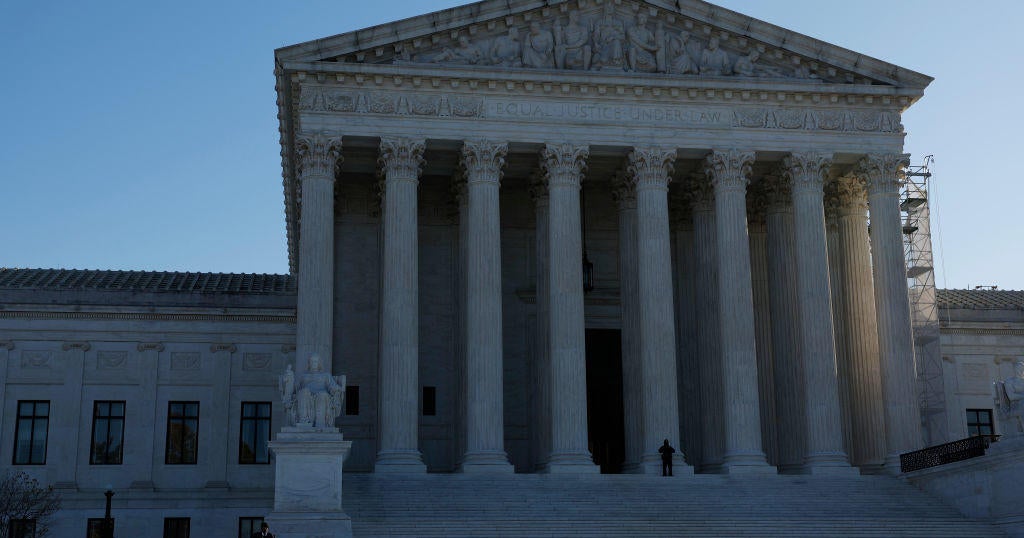CBS News
What is the cheapest meal kit? You asked, we answered

Meal delivery services are convenient for a plethora of reasons. The best meal kits are relatively cheap and some, like the popular and plant-based Mosaic Foods, can help you branch out and try new foods or find some consistency in home cooking, which makes withstanding the pricey allure of takeout or delivery easier.
But with new reasons to find ways to save money on meals popping up right and left (shrinkflation? No thanks), you might be wondering which budget-friendly meal kit has the absolute cheapest prices.
What is the cheapest meal kit of 2024?
Meal kits are typically priced per serving. This determines how much you pay per delivery, with some added expenses like shipping and premium recipe upgrades playing a small part. Some meal kit delivery services like the uber-popular HelloFresh come with appealing sign-up bonuses, including free shipping.
If you want a bigger and better way to save money on meal kits, the secret lies in those serving costs. Dinnerly is one of the most budget-friendly meal delivery services out there with prices as low as $5 per meal. Dinnerly’s weekly menu offers more than 30 fully prepared meals — perfect for large families looking to save as much as possible on meal prep throughout the week.
However, one meal delivery service outshines all the others thanks to low serving costs and a signup bonus that beats out all the others: EveryPlate.
Spend the least on meal kit delivery with EveryPlate
When it comes to meal services with low costs per serving, there’s just no beating EveryPlate. This meal delivery service offers the best value for its weekly dinner meals and recipes with plans starting as low as $5 per serving, making this the cheapest meal delivery service out there.
What’s better is that EveryPlate, like many other popular meal delivery services, offers impressive discounts for new subscribers. Right now, you can sign up for your first box of EveryPlate meals — enjoying up to six meals per week with two, four, or six servings a piece — at a 70% discount. This is good news for anyone looking for low prices that beat out a trip to the grocery store; that first box can cost as little as $1.49 per meal.
That’s right: $1.49 each for recipes like EveryPlate’s cajun chicken sandwiches with potato wedges, smothered pork chops with roasted carrots and couscous, and more. You might find a deeper variety with other, more expensive meal kits, but EveryPlate’s offerings cover a lot of ground. From comfort-food items with a twist like the cheesy tortilla smash burgers to zesty options like the southwest fork flautas, there’s enough here to satisfy the pickiest of eaters.
Other ways to save on meal delivery services
There’s one rule of thumb to keep in mind regarding most meal kits: Your price per serving goes down the more you add on to your order. Blue Apron typically charges $8 per serving for five four-serving meals or $12.49 per serving for just two two-serving meals. Deal hunters take note: those numbers are currently as low as $4 per serving for new subscribers.
This is why meal kits are a great option for large families trying to save a few bucks on their food budget each week: The more you order with each box, the more you stand to save in the long run.
This tip isn’t limited to large families, either. If you’re single or cooking couples’ dinners throughout the week, you can order extra meals or portions to keep serving prices low. Just make sure you take steps to minimize food waste throughout the week; freeze proteins like chicken breasts to extend the shelf life of a recipe or use leftovers for lunch.
CBS News
Supreme Court takes up South Carolina’s effort to defund Planned Parenthood

Washington — The Supreme Court on Wednesday agreed to consider South Carolina health department’s effort to cut off funding from Planned Parenthood because it performs abortions, wading into another dispute over access to the procedure in the wake of its reversal of Roe v. Wade.
The case, known as Kerr v. Edwards, stems from the state’s decision in 2018 to end Planned Parenthood South Atlantic’s participation in its Medicaid program. Gov. Henry McMaster, a Republican, directed the South Carolina Department of Health and Human Services to deem abortion clinics unqualified to provide family planning services and end their Medicaid agreements.
Planned Parenthood operates two facilities in the state, one in Charleston and the other in Columbia, and provides hundreds of Medicaid patients with services like physicals, cancer and other health screenings, pregnancy testing and contraception. Federal law prohibits Medicaid from paying for abortions except in cases of rape or incest, or to save the life of the mother.
Planned Parenthood and one of its patients, Julie Edwards, sued the state, arguing that cutting off its funding violated a provision of the Medicaid Act that gives beneficiaries the right to choose their provider.
A federal district court blocked South Carolina from ending Planned Parenthood’s participation in its Medicaid program, and a U.S. appeals court upheld that decision, finding that Edwards could sue the state to enforce the Medicaid Act’s free-choice-of-provider requirement.
The legal battle has already been before the Supreme Court in the past, with the high court last year ordering additional proceedings after deciding in a separate case that nursing home residents could sue their state-owned health care facility over alleged violations of civil rights.
After reconsidering its earlier decision, the three-judge appeals court panel ruled unanimously in March that Edwards’ lawsuit against the state could go forward and said South Carolina couldn’t strip Planned Parenthood of state Medicaid funds.
“This case is, and always has been, about whether Congress conferred an individually enforceable right for Medicaid beneficiaries to freely choose their healthcare provider. Preserving access to Planned Parenthood and other providers means preserving an affordable choice and quality care for an untold number of mothers and infants in South Carolina,” Judge Harvie Wilkinson wrote for the 4th Circuit panel.
South Carolina officials asked the Supreme Court to review that decision, marking the third time the case has been before the justices. The justices agreed to take up the question of whether “the Medicaid Act’s any-qualified provider provision unambiguously confers a private right upon a Medicaid beneficiary to choose a specific provider.”
South Carolina is among the more than two dozen that have passed laws restricting access to abortion in the wake of the Supreme Court’s June 2022 decision reversing Roe v. Wade. In South Carolina, abortion is outlawed after six weeks of pregnancy with some exceptions.
Several states have also enacted laws blocking Planned Parenthood from receiving Medicaid funding, including Arkansas, Missouri, Mississippi and Texas.
CBS News
Lithium battery fires on U.S. flights now occur nearly twice a week, according to new FAA data

As millions prepare to fly for the holidays, the Federal Aviation Administration is warning travelers about a hidden danger in their luggage: lithium-ion batteries. Found in everyday devices like laptops, tablets and even electric toothbrushes, these batteries can catch fire if they overheat or are damaged.
Last July, panic erupted on an American Airlines flight from San Francisco to Miami after a laptop battery in a carry-on bag ignited.
“It was absolute chaos. It truly felt like every man for themselves. And it was terrifying,” said Shilpa Patel, a passenger on the flight. “I don’t know if we’re going to explode. All I know is I need to get out and I need to survive.”
FAA data shows that lithium battery fires on U.S. flights have risen 388% since 2015, now occurring nearly twice a week.
“Any fire at 30,000 feet is unacceptable,” said David Wroth of UL Standards & Engagement, a safety research organization.
A survey of more than 800 flight attendants conducted by UL found that 87% are concerned about lithium battery risks on airplanes, and more than a third believe airlines should do more to ensure passenger safety. While the FAA requires airlines to include general safety information in preflight announcements, those warnings often don’t address the specific risk of battery fires.
“It’s a balance we probably need to do a better job striking with the airlines,” said Ben Supko, who oversees hazardous materials safety for the FAA. “Passengers don’t fully understand how serious the risk is.”
Supko said passengers need to monitor devices during a flight and immediately notifying the crew if a device becomes warm, discolors, or bulges. Passengers are also warned not to pack lithium batteries in checked luggage, as fires in the cargo hold are harder to extinguish.
“When you don’t know what’s going to happen, you act erratically,” said Patel. “It costs us nothing just to say, ‘Hey, the reason why we’re so serious about this is because it could be really dangerous. It could catch fire.'”
The UL survey also found that one in four passengers admits to packing lithium batteries in their checked bags. It is a dangerous practice for one reason in particular: It would be even harder to put out a fire in the plane’s cargo hold.
CBS News reached out to American Airlines regarding the incident at the San Francisco airport and potential updates to its safety announcements. The airline did not address the question directly but stated that its flight attendants receive thorough and ongoing training to handle emergencies onboard.
CBS News
Eye Opener: Update on possible motives in Wisconsin school shooting

Watch CBS News
Be the first to know
Get browser notifications for breaking news, live events, and exclusive reporting.



